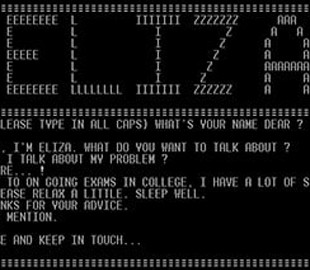
Massachusetts Institute of Technology (MIT) professor Joseph Weizenbaum developed the ELIZA chatbot 59 years ago. This virtual interlocutor – «great-grandmother» ChatGPT.
For a long time, it was believed that the original code for the language model was lost. Scientists Jeff Schrager from Stanford University and Miles Crowley from MIT found it in Weizenbaum's papers.
«I'm particularly interested in what the pioneers of AI thought. The code of computer scientists is almost the same as the recording of their thoughts. From a technical point of view, we didn't even know that the code we found – the only version that had been discovered – actually worked», – shared study co-author Jeff Schrager.
The team cleaned up and debugged the code, then built an emulator: they wanted the chatbot interface to look just like on a computer from the 1960s. The researchers were surprised by ELIZA's sophistication. There was a mistake in the original, but the scientists decided not to fix it for the sake of authenticity. In their opinion, the edits would look like “if we had fixed a mistake in the original ”Mona Lisa”».
Of course, modern generative AI is incomparably more powerful than the «filler» ELIZA. However, it can effectively maintain a conversation for some time. In some ways, ELIZA even surpasses its “contemporaries”: it supports the conversation, not just completing your sentences, but actively suggesting that you continue the conversation.

